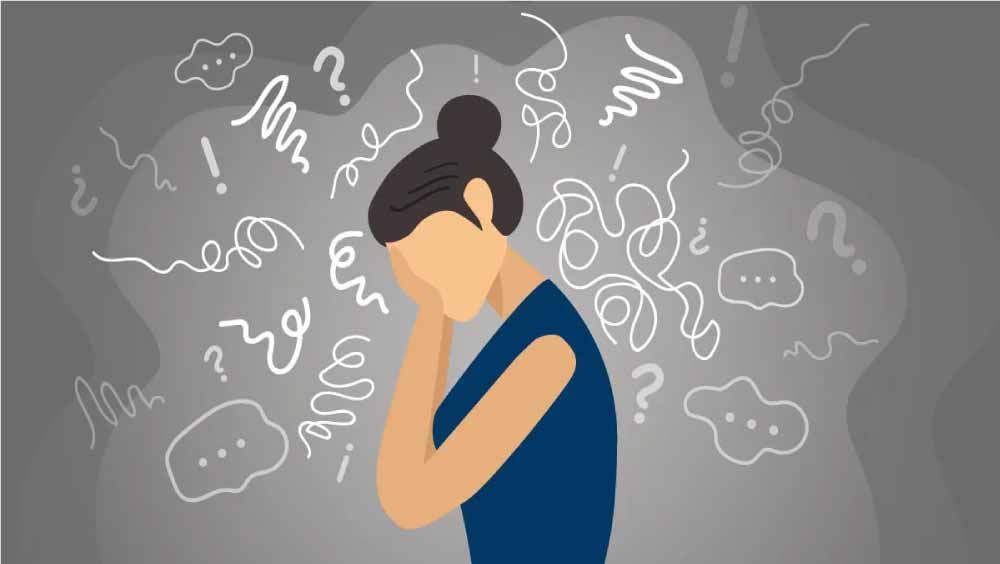If you suffer from anxiety, your GP may recommend one of several self-help courses to help you cope with your symptoms. These range from individual computer programs or books to group sessions with a therapist once a week. Your doctor may also prescribe medication if you need more intensive treatment. If you can’t cope with your anxiety on your own, your GP can suggest a course that combines medication and psychological treatment.
Stress
Our bodies respond to stress by producing hormones known as stress hormones, which increase heart rate and pulse, and make us more alert. These reactions are natural and useful for coping with stressful situations in the short term, but chronic stress can have adverse effects on our health. In this article, we will discuss the causes of stress, how to prevent anxiety attacks, and how to recognize the symptoms of stress.
A healthy amount of stress can be a good thing, as it motivates us to work hard and achieve goals. However, stress that becomes excessive can cause physical pain, digestion problems, and even heart disease. While stress is a natural part of life, it’s important to know when it becomes too much and when to seek help. A trained professional can give you the tools you need to manage your stress levels.
Research by the U.S.
Preventive Services Task Force found that nearly half of Americans had some form of anxiety disorder. Most of these people are not aware that they have the condition. In fact, 7% of Americans meet the definition of major depressive disorder. It is a widespread epidemic that has disrupted our daily lives.
Anxiety is often a symptom of chronic stress, a long-term response to constant pressure. Unlike acute stress, chronic stress does not have a specific stressor. It can occur spontaneously or in response to stressful situations. Anxiety is often caused by a perceived fear.
Talking to a trusted person about your concerns can help relieve stress and anxiety. This can be done face-to-face, over the phone or online. By talking about your concerns, you can learn to better understand how to respond and be more compassionate. The American Anxiety and Depression Association recommends that you learn to recognize the symptoms of anxiety and stress to better manage your situation.
There are many types of stress and anxiety, including acute and chronic. Acute stress is the short-term form and can occur after an event, such as a natural disaster, assault, or stressful situation. Chronic stress, on the other hand, can last for long periods of time and can lead to health complications.
Environmental factors
Environmental factors can have an impact on anxiety. Although genetics may have some influence, environmental factors also play a role. In this study, we examined the effects of genetic and environmental factors on anxiety. The results show that genetic influences explain some of the variation in anxiety, but most of the variation is due to non-additive environmental factors.
The childhood environment can also play an important role in the development of anxiety. Early adversity can result in poor interpersonal relationships and high-risk environments, which can aggravate symptoms. In addition, childhood trauma can trigger anxiety. Children can learn their anxiety from relatives or others who seem anxious. For example, children raised by perfectionist parents are likely to show anxiety.
The twin method
The twin method can be used to investigate individual differences in measures of anxiety. In this approach, monozygotic and dizygotic twins share their genetic makeup, and only 50 percent of their genes are unique. The twins also share the same environment. This allows scientists to estimate the relative contribution of genes to trait variation.
Several animal studies have also found associations between childhood environment and anxiety. The behavioral inhibition hypothesis suggests that early experiences that promote social and novel fear may later develop into anxiety disorders. The findings are important because they can inform the design of preventive and intervention programs. In addition, animal studies have shown that maternal factors contribute to the development of anxiety in children.
Physical factors such as pollution and lack of green spaces can have a negative impact on mental health. The physical environment can also be linked to substance abuse, poor diet, and unemployment. In addition, environmental factors can contribute to mental health conditions, such as hoarding and depression. Therefore, environmental factors can complement other factors to help people cope with anxiety and depression.
The genetic and environmental architectures are similar in men and women. However, environmental factors and age can affect anxiety differently. The study of spatial anxiety reveals a large number of variables that can influence the level of anxiety.
Genetic Risk Factors for Anxiety
Anxiety disorders have been linked to genetic predisposition. Some experts believe that alterations in the HPA axis are linked to certain genetic polymorphisms. In a recent study, researchers examined the relationship between several genetic polymorphisms and anxiety. In the study, DNA samples from 72 healthy individuals (37 men and 35 women) were analyzed for five genes.
While genetics play a role in the risk of anxiety disorders, other factors can be much more significant. For example, adverse childhood experiences, such as abuse or divorce, can also increase the risk of anxiety. Parents can also model certain behaviors for their children that may cause anxiety in the future. Genetics can only explain about a quarter of the variability, but it may be a factor.
The genetic basis has not been fully understood, but recent large-scale genome-wide association studies (GWAS) provide tantalizing clues. Although anxiety-related traits are notoriously polygenic, a handful of specific loci have shown consistent associations and replications across multiple studies of similar phenotypes. Examples of these loci include the SATB1, MAD1L1, and CAMKMT genes.
While the results of GWAS are encouraging, there are several limitations to this study. One limitation is the limited phenotyping in this study, which is typical in GWAS involving generalized anxiety. The researchers also used two screening questions for current symptoms and a single self-report item for lifelong disorder. Another limitation is that the study predominantly included older male participants. Previous studies have suggested that genetic influence on varies by sex and age, which may complicate replication.
Other genetic risk factors for anxiety
Other genetic risk factors for anxiety disorders include having a parent with a mental disorder. Children who have an anxious or depressed parent are more likely to develop disorders. These parents are unable to teach their children how to cope with anxiety, which is a key factor. Although these genetic risk factors have bidirectional effects, it is not known how to prevent in children.
Another important factor that influences is the inhibition of behavior. Researchers suggest that parents who model their children’s overprotective responses may have an increased risk of anxiety disorders. Preventive interventions, such as psychoeducation, can prevent or reduce disorders.
Treatment Options for Anxiety
There are many treatment options and the effectiveness of each varies. Some treatments are effective of low to moderate intensity, while others are not. Psychotherapy, such as cognitive behavioral therapy (CBT), may be effective for some cases. Acupuncture and aromatherapy are complementary treatments. Exercise and mindfulness are also helpful.
Regardless of the cause, it is important to find a treatment for it. It can harm your life and affect relationships. It can cause you to avoid situations that cause you distress and can even cause depression. Can even affect children, depriving them of important developmental experiences.
Some people choose not to seek treatment. They mistake their anxiety for a physical disorder and think they can control their worry on their own. This can have disastrous consequences. A more sensible approach is to seek treatment as soon as possible. It’s never too early to seek help. Getting help is the first step to recovery.
Cognitive behavioral therapy (CBT) is an important treatment option. CBT helps you disempower your negative thoughts by teaching you new coping strategies. It is also commonly used along with medications, as some people may not be able to focus on therapy without medication. The primary goal of cognitive behavioral therapy is to teach you a lifelong ability to manage your anxiety.
CBT is the main method of treatment. This treatment involves applying a low-intensity electric current to the earlobes. Electrical current affects brain activity, which can reduce symptoms. It’s important to find a health care professional who can help you decide which treatment option is right for you.
Antidepressants may also be helpful. This type of medication is called a selective serotonin reuptake inhibitor (SSRI). These antidepressants are generally very effective in reducing the severity of anxiety. However, they have significant side effects, especially in older adults.


